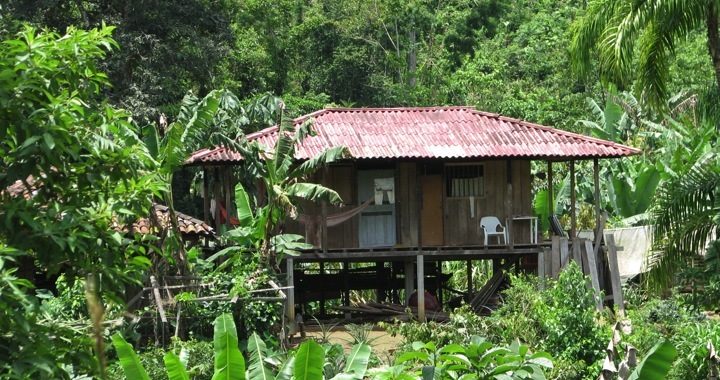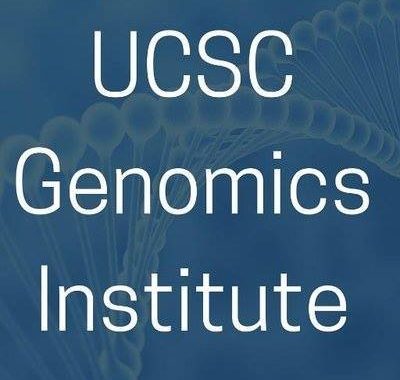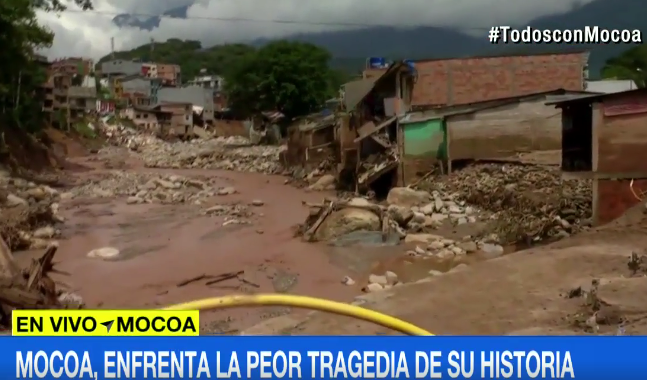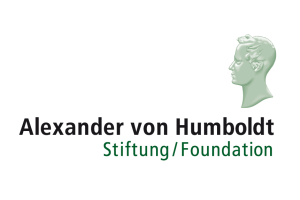UC Santa Cruz offers a wide range of courses across its many disciplines whose curriculum questions the relationships between science, society and justice. The below list of courses (undergraduate and graduate, face to face and online) are taught across all five academic divisions. To add your course: email us at scijust[at]ucsc.edu
Undergraduate Courses
Anth 136 The Biology of Everyday Life: Addresses cross-cultural attitudes to the human body and its everyday biological concerns: sleeping, eating, breathing, sex, and defecation. Prerequisite(s): course 2. Instructor Nancy Chen; Time: MWF 10:40-11:45AM
ANTH 110E Anthropology of Global Environmental Change: Introduces anthropological and historical approaches to environmental change and globalization. Key themes include: capitalism and industrialization, environmental politics, global culture, and relations between humans and other species. Instructor: Jerry Zee; Time: MW 05:20PM – 06:55PM
ANTH 110W Land and Waterscapes Entropology: Establishes anthropological interconnections of emergent worlds where environmental matters, social justice, and human survival interrelate. Focuses on anti-essential nature and waterscape ethnographies in which different pluricultures revalidate local understandings as ways of contesting increasing forms of land and water privatization. Instructor: Guillermo Delgado; Time: TuTh 05:20PM – 06:55PM
ANTH 196W-01 Anthropology of Weather and Exposure: Students discuss how differing approaches to weather and exposure generate different approaches to culture, science, and politics; identify key moments in cultural anthropology’s engagement with environmental and climactic questions; and delineate new areas of research. Instructor: Jerry Zee; Tu 10:00AM-01:00PM
FMST 30 Feminism and Science: Explores questions of science and justice. Examines the nature of scientific practice, the culture of science, and the possibilities for the responsible practice of science. Rather than focusing on feminist critiques of science, the course examines how science and technology are changing our world and the workings of power. (Formerly course 80K.) Enrollment limited to 80. (General Education Code(s): PE-T.) Instructor: Karen Barad; Time: Tuesday/Thursday 1:30-3:05PM
FMST 131 The Politics of Matter and the Matter of Politics: Considers how “things”–what we may think of as objects, matter, nature, technology, bodies–are constitutive elements of social and political life. What happens to the political as a category if we take this matter seriously? Prerequisite(s): course 1. Instructor: Kristina Lyons; Time: Tuesday/Thursday 1:30-3:05PM
FMST 194L Decoloniality, Feminism, and Science Studies: Introduces decolonial perspectives and considers how science studies might be radically transformed through an engagement with decolonial, indigenous, and black feminist perspectives, and scholars from the global South. Prerequisite(s): satisfaction of the Entry Level Writing and Composition requirements; courses 1 and 100. Enrollment is restricted to juniors and seniors. Enrollment limited to 20. Instructor: Kristina Lyons; Time: Tuesdays 5:00-8:30PM
HIS 151 – 01 History of Science, Medicine, and Technology from Antiquity to the Enlightenment: Questions explored include the debate over when/where “modern science” began; the role of craft-based and artisanal skills in the production of knowledge; and the technological and social impacts of intellectual change, from the Bronze Age to the birth of computing. (General Education Code(s): SI.) Instructor: B. Breen; Time: Tuesday/Thursday 9:50-11:25AM
Oakes 153 Community Mapping: Students study the theories and methods of community mapping, and work in research teams to design and conduct social-research projects. Emphasizes research questions that focus on assets and capacities, as well as on participatory-action research for justice. Prerequisite(s):satisfaction of Entry Level Writing and Composition requirements. Enrollment restricted to Oakes College members and community studies majors. Enrollment limited to 25. May be repeated for credit. (General Education Code(s): PR-S.) L. Lopez; MW 1:20-3:20PM
SOCY 132. Sociology of Science and Technology: Reviews social and cultural perspectives on science and technology, including functionalist, Marxist, Kuhnian, social constructionist, ethnographic, interactionist, anthropological, historical, feminist, and cultural studies perspectives. Topics include sociology of knowledge, science as a social problem, lab studies, representations, practice, controversies, and biomedical knowledge and work. Enrollment is restricted to junior and senior majors and minors in sociology, biology, biochemistry, critical race and ethnic studies, global information and social enterprise, and Latin American studies/sociology combined. Enrollment limited to 20. J. Doucet-Battle; TuTh 09:50 – 11:25AM
Graduate Courses
FMST 214 Topics in Feminist Science Studies: Graduate seminar on feminist science studies. Topics will vary and may include: the joint consideration of science studies and poststructuralist theory; the relationship between discursive practices and material phenomena; and the relationship between ontology, epistemology, and ethics. Enrollment restricted to graduate students. Enrollment limited to 15. K. Barad or other.
- Topic: This course centers feminist materialist debates in Native concepts of science, matter, land, timespace, spirit/sacred, and relationality with the nonhuman. We look to a variety of indigenous and decolonial thinkers who have long lived, envisioned, practiced and theorized related ontologies with land, animal, and spirited forces to see, know, and be “otherwise.” We re-evaluate what counts as scientific evidence/the empirical and question the norms and occlusions of the field of feminist materialism through debates with a range of indigenous and allied scholars within and at the margins of native studies, decolonial studies, and Feminist Science & Technology Studies. We tackle the following questions: What critical visions, claims to knowledge, being, and sovereignty open up when we take seriously indigenous worldviews? How might we think about science as a place-based, embodied, and lived practice that is as much local as it is cosmological? What new ways of thinking the universal, time, and space become possible? We consider alternatives to capitalist development, empire, sovereignty, as well as life/death by shifting the focus to a range of indigenous perspectives. Instructor: Felicity Amaya Schaeffer; Time: Mondays 10-1pm
Offered Spring 2018
Undergraduate Courses
ANTH 106 Primate Behavior and Ecology: The nature of primate social systems and social bonds is examined in the light of evolutionary and ecological concepts. Students cannot receive credit for this course and course 206. Prerequisite(s): course 1. V. Oelze
ANTH 110U Anthropology of Science: Examines science and technology through an anthropological lens, focusing on ethnographic studies of scientific practice and relations between science and society. We will look at studies theorizing core scientific elements, and focus on qualitative, empirically-based studies of scientific practice.
ANTH 134 Medical Anthropology – An Introduction: Cross-cultural study of health, disease, and illness behavior from ecological and ethnomedical perspectives. Implications for biomedical health care policy.
ANTH 146 Anthropology and the Environment: Examines recent approaches to study of nature and the environment. Considers historical relationship between nature, science, and colonial expansion as well as key issues of contemporary environmental concern: conservation, environmental justice, and social movements.
ANTH 190X Special topics in Biological Anthropology: Taught annually on a rotating basis by various faculty members. Precise focus of each year’s course varies according to the instructor and is announced by the department. (Formerly Special topics in Archaeology-Physical Anthropology.) Prerequisite(s): course 1. May be repeated for credit. The Staff
Topic (Neanderthals): This course will use primary academic research to explore the social behaviors, technology, anatomy, and genetics of neanderthals and in the end, we will gain a more holistic understanding of exactly who neanderthals were.
ART 80B Environmental Art: Examines ways artists engage, interact, and comment upon ecology and nature in their artworks by examining environmental art from the 1960s through the present. (General Education Code(s): PE-E.) Instructor: Elizabeth Stephens, *Students from other disciplines are encouraged to enroll
ART 125 Environmental Art Studio: Introduces students to environmental art and design through basic concepts, techniques, and studio practice. Students are billed for a materials fee. Prerequisite(s): Three courses from: Art 15, 20G, 20H, 20I, 20J, 20K, 26, and Computational Media 25 Enrollment restricted to art majors. May be repeated for credit. Instructor: Elizabeth Stephens, The Staff
FMST 133 Science and the Body: Contemporary technoscientific practices, such as nano-, info-, and biotechnologies, are rapidly reworking what it means to be human. Course examines how both our understanding of the human and the very nature of the human are constituted through technoscientific practices. Prerequisite(s): courses 1 and 100. Enrollment restricted to juniors and seniors. (General Education Code(s): PE-T.) Instructor: Karen Barad
LIT 80K Topics in Medical Humanities: Medical Humanities designate an interdisciplinary field of humanities (literature, philosophy, ethics, history, and religion) concerned with application to medical education and practice. The humanities provide insight into the human condition, suffering, personhood, and our responsibility to each other; and offer a historical perspective on medical practice. (General Education Code(s): PE-T.) Instructor: W. Godzich
Graduate Courses
FMST 214 Topics in Feminist Science Studies: Graduate seminar on feminist science studies. Topics will vary and may include: the joint consideration of science studies and poststructuralist theory; the relationship between discursive practices and material phenomena; and the relationship between ontology, epistemology, and ethics. Enrollment restricted to graduate students. Enrollment limited to 15. Instructor: Karen Barad
SOCY 268A Science and Justice: Experiments in Collaboration: Considers the practical and epistemological necessity of collaborative research in the development of new sciences and technologies that are attentive to questions of ethics and justice. Enrollment by permission of instructor. Enrollment restricted to graduate students. (Also offered as Biomolecular Engineering 268A and Feminist Studies 268A and Anthropology 267A. Students cannot receive credit for both courses.) Enrollment limited to 15. Instructor: Kristina Lyons
Offered Summer 2018
Undergraduate Courses
LIT 61U Introduction to Speculative Fiction: Close reading of speculative and science fiction texts (short stories, novels, and films) with the aim of developing critical methods for the analysis and interpretation of SF as a critique of science, technology, and culture. Course will explore themes like encounters across species; novelty and change; expanded concepts of life; and the role of technology in human development. (General Education Codes: PE-T). Offered during summer session as online. Z. Zimmer








